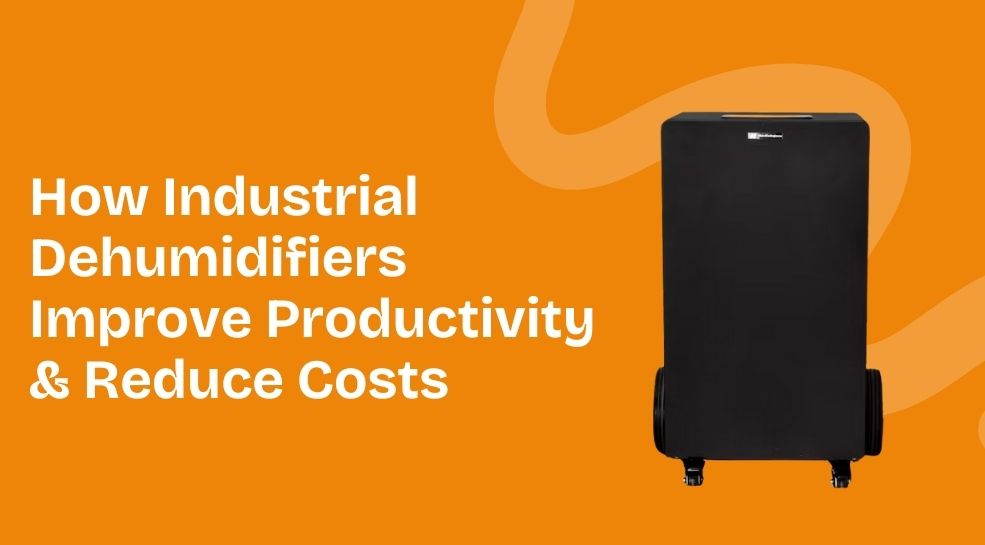
For industries, humidity control is more than just comfort—it’s a business-critical factor. Excess moisture in the
air doesn’t just affect product quality; it impacts compliance, worker efficiency, equipment reliability, and
ultimately, profitability.
That’s why more organizations are investing in industrial-grade dehumidifiers—a solution that not only
safeguards processes but also improves productivity and reduces operational costs.
Here’s how.
1. Protecting Raw Materials & Finished Goods
Moisture can ruin raw materials like powders, chemicals, textiles, and metals, leading to:
Clumping or spoilage in powders and grains
Corrosion in machinery and components
Mold or mildew on goods during storage
A dehumidifier ensures materials and finished products stay in perfect condition, reducing rejections and costly
wastage.
2. Enhancing Worker Productivity
High humidity makes workplaces feel heavy, sticky, and uncomfortable, which directly impacts employee
efficiency and morale. Worse, damp environments can cause respiratory problems and sick days.
Dehumidifiers create a healthier, safer, and more comfortable workspace—helping workers stay focused and
productive.
3. Reducing Equipment Downtime
Moisture is one of the leading causes of equipment failure. It accelerates rust, corrodes electrical parts, and
damages sensitive machinery.
By maintaining optimal humidity levels, dehumidifiers extend equipment life and reduce unplanned downtime—
saving both time and maintenance costs.
4. Improving Energy Efficiency
When the air is humid, cooling systems like air conditioners and chillers work harder to regulate both temperature
and moisture, consuming more energy.
By handling the humidity load, dehumidifiers reduce strain on HVAC systems, resulting in lower energy bills and
optimized climate control.
5. Ensuring Regulatory Compliance
Industries like pharmaceuticals, food & beverage, textiles, and electronics must adhere to strict humidity
standards. Non-compliance risks product recalls, safety hazards, and penalties.
A dehumidifier ensures consistent environmental control, making it easier to pass audits and maintain
certifications.
6. Reducing Product Returns & Customer Complaints
Spoiled food, rusted parts, moldy packaging, or malfunctioning electronics often lead to customer dissatisfaction and
costly returns.
With humidity under control, businesses can maintain product quality, leading to higher customer satisfaction and
brand reputation.
7. Long-Term Cost Savings
While investing in an industrial dehumidifier may seem like an upfront expense, the ROI is significant:
Fewer rejected batches
Lower energy bills
Reduced equipment maintenance
Less downtime
Extended product shelf life
Over time, businesses save far more than they spend—making dehumidifiers a profit-boosting investment.
Why White Westinghouse USA Industrial
Dehumidifiers?



Final Thoughts
For decision-makers, controlling humidity isn’t just about avoiding inconvenience—it’s about protecting assets,
reducing waste, boosting worker productivity, and lowering operational costs.
A White Westinghouse USA Industrial Dehumidifier is more than an appliance; it’s a strategic investment that
pays off in efficiency, compliance, and profitability.










